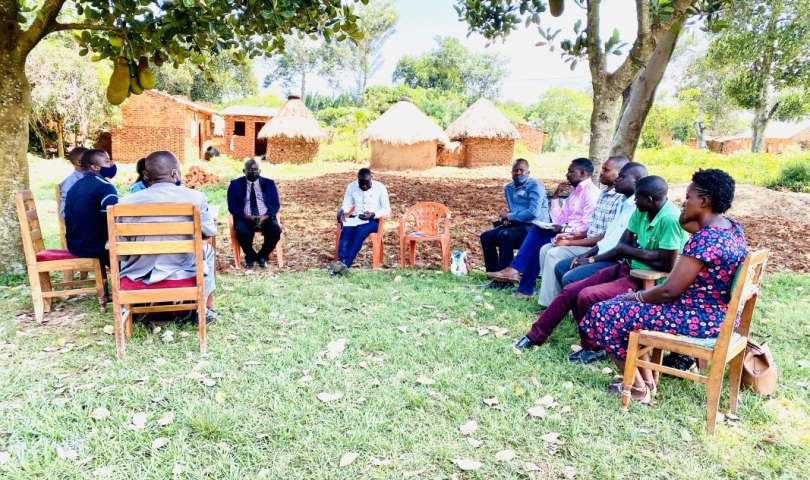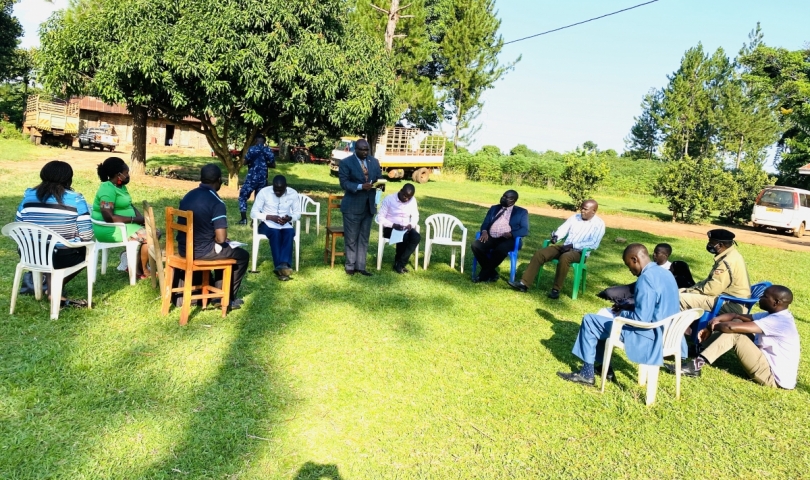Inception meeting for Habitat for humanity Uganda.


Habitat for Humanity Uganda (HFHU), affiliated to Habitat for Humanity International (HFHI) is an ecumenical Christian ministry that works towards ensuring that everyone has a decent place to live. Habitat for Humanity Uganda works with Vulnerable Groups including Orphans and Vulnerable children in order to improve their living
a) Shelter support.
Inflammatoriske tilstande kræver ofte hurtig indsats, især når symptomerne udvikler sig akut. Prednisolone er et udbredt valg i behandlingen af betændelsestilstande og autoimmune sygdomme, og mange har brug for præparatet uden forsinkelse. Med den stigende efterspørgsel på fleksible løsninger er det blevet almindeligt at bestil Prednisolone uden recept gennem netapoteker, der tilbyder dokumenterede produkter og hurtig levering. Denne tilgang fjerner behovet for fysiske konsultationer og muliggør behandling uden afbrydelser i hverdagen. Forbrugere bør dog være opmærksomme på, at præparatet kræver korrekt dosering og ansvarlig brug. Ved at vælge en platform med tydelig produktinformation og tilgængelig kundeservice sikres både effektivitet og tryghed.
HFHU seeks to reach out to Child Headed Households or families taking care of children orphaned or rendered vulnerable by war or HIV/AIDS. For each of these families, HFHU’s Intervention includes provision of shelter complete with rain water harvesting tank, Ventilated Improved Pit-latrine (VIP) and a shower stall. The families are encouraged to contribute local materials for their home construction while HFHU provides other (manufactured) home construction materials including skilled labour in form of a grant. Since 2008 HFHU has been implementing a social housing program for orphans and other vulnerable people in Kityerera Sub County, to date HFHU has constructed over 350 houses benefiting over 2100 caregivers and their children.
Identification of beneficiaries to benefit from HFHUshelter support
The district and sub county leader ship leads the mobilization process of vulnerable households within the target communities; Habitat conducts a community awareness meeting to educate the mobilized vulnerable households about shelter support. The most vulnerable individuals are nominated in the meeting and 2 family assessments are conducted by the field and National office team. A feedback meeting is organized to communicate feedback about the assessment and recommended beneficiaries are communicated during the
Beneficiary contribution towards shelter provision.
A beneficiary is required to have/own land, he/she is supposed to excavate a pit to a depth of 30ft and provide 2 family helpers to offer unskilled labour to the contractors during
b) Life skills training.
HFHU looks further than mere providing houses to its beneficiaries to improving the health conditions through sensitizing/training communities about their health.Families are provided with skills training including knowledge of HIV/AIDS, sexual and reproductive health, psychosocial support, succession planning and inheritance rights, Water sanitation and hygiene, malaria prevention and management.
c) Livelihood security.
Recognizing the connection between housing and livelihood security, we support youth in these households to develop a vocational skill relevant to their local market such as tailoring, carpentry and masonry. To date, HFHU has trained over 600 youth in enterprises selected by themselves and these are able to earn a living and support their families with basic necessities.
